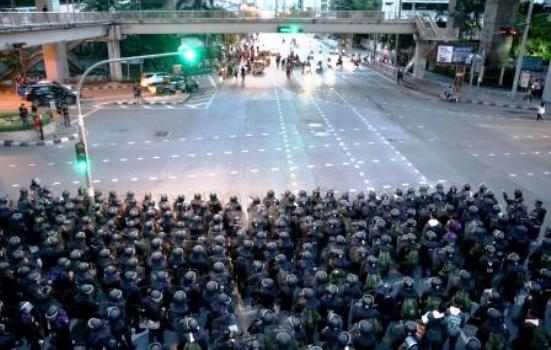Tanvi Sinha
A message sent to Thailand protestors as the Bangkok Criminal Court finds a woman guilty on 29 counts of violating the country’s les majeste law for posting audio clips to Facebooks and Youtube with comments that were critical of the monarchy.
The woman, a former civil servant has been sentenced to 43 years and six months of prison term as told by the Thai Lawyers for Human Rights group.
The ongoing Thailand protests that started 2020 were a massive movement on the part of the country’s populace to reform the monarchy and to democratise Thailand. The royal institution in Thailand has long been regarded as scared in the country.
The judgement was said to be spine chilling because it showed that persons who were critical of the monarchy and the military would not just be not tolerated but also severely punished.
The law under which the woman was sent to jail happens to be Article 112, also known as Lese Majeste Law, where being critical of the monarchy is punishable by 15 years.
The woman, referred to by her first name Anchan, has been on trial for 6 years and the only reason experts say her sentence was made now and so harshly was to send a message to the protestors.
The woman, who had only shared an audio, amongst thousands of other people who had done the same, and had hence thought it was nothing, is in her 60s-70s and would have the largest sentence given for insulting the monarchy.
The court was initially going to give her 87 years, but halved it when she plead guilty.
The law doesn’t require the military or the royals to push for a charge but can be done by anyone.
The protests began in 2020 with Thai people getting sick of the military coups that often overthrow elected governments as well as the lack of reforms that exist in the country’s system.
This largely began when in March, a judge shot himself to death when his supervisors tried to influence the judgement into the favour of the military.
The judge had actually first shot himself inside a courtroom on October 19th as a symbolic way of showing the oppression that he and his countrymen were going through, but had failed to die.
Then for a second time, he once again shot himself in his home when his family was out, leaving a 2 page note on Facebook highlighting the injustice of the system once again in March.
The protests began soon after.
The government’s stance on the issue and their behavior since had definitely not helped, with an anti-LGBTQ bill being passed in the same country that calls itself LGBTQ friendly, political activists kidnapped with no trace, unemployment, criminals boasting of being arm in arms with the government and persons who were critical of the monarchy being locked up in mental institutions.
Since November at least 50 people have been arrested under Article 112.

